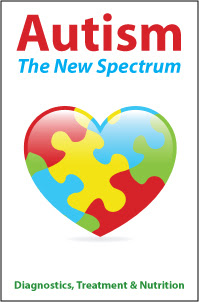Clinical Supervision for Healthcare Professionals is a newly updated 3-hour online continuing education (CE) course that outlines best practices in psychotherapy supervision and reviews the structure of the supervisory relationship.
Topics presented include developmental models of supervision, goals of the supervisory experience, ethics and risk management in the supervision process, using technology in supervision, and diversity awareness training for the supervisee.
The vital and, at times, challenging relationship between supervisor and supervisee is discussed and compared to the therapy relationship. The importance of self-care for both the supervisee and the supervisor is also highlighted.
A review of the type and structure of performance evaluations is included, along with information about successful termination. Although this course is primarily written for psychotherapists, many of the essential facets of supervision apply to other disciplines such as occupational therapy and social work. This information is offered to support those healthcare professionals who wish to increase their competencies as clinical supervisors. Course #31-47 | 2022 | 54 pages | 20 posttest questions
Click here to learn more about Clinical Supervision for Healthcare Professionals
- CE Credit: 3 Hours
- Target Audience: Psychologists | Counselors | Social Workers | Occupational Therapists (OTs) | Marriage & Family Therapists (MFTS)
- Learning Level: Intermediate
- Course Type: Online
Professional Development Resources is approved by the American Psychological Association (APA) to sponsor continuing education for psychologists. Professional Development Resources maintains responsibility for this program and its content. Professional Development Resources is also approved by the National Board of Certified Counselors (NBCC ACEP #5590); the Association of Social Work Boards (ASWB Provider #1046, ACE Program); the Continuing Education Board of the American Speech-Language-Hearing Association (ASHA Provider #AAUM); the American Occupational Therapy Association (AOTA Provider #3159); the Commission on Dietetic Registration (CDR Provider #PR001); the Alabama State Board of Occupational Therapy; the Arizona Board of Occupational Therapy Examiners; the Florida Boards of Social Work, Mental Health Counseling and Marriage and Family Therapy, Psychology and Office of School Psychology, Speech-Language Pathology and Audiology, Dietetics and Nutrition, and Occupational Therapy Practice; the Georgia State Board of Occupational Therapy; the Louisiana State Board of Medical Examiners – Occupational Therapy; the Mississippi MSDoH Bureau of Professional Licensure – Occupational Therapy; the New York State Education Department’s State Board for Psychology as an approved provider of continuing education for licensed psychologists (#PSY-0145), State Board for Mental Health Practitioners as an approved provider of continuing education for licensed mental health counselors (#MHC-0135) and marriage and family therapists (#MFT-0100), and the State Board for Social Workers an approved provider of continuing education for licensed social workers (#SW-0664); the Ohio Counselor, Social Worker and MFT Board (#RCST100501) and Speech and Hearing Professionals Board; the South Carolina Board of Examiners for Licensure of Professional Counselors and Therapists (#193), Examiners in Psychology, Social Worker Examiners, Occupational Therapy, and Examiners in Speech-Language Pathology and Audiology; the Tennessee Board of Occupational Therapy; the Texas Board of Examiners of Marriage and Family Therapists (#114) and State Board of Social Worker Examiners (#5678); the West Virginia Board of Social Work; the Wyoming Board of Psychology; and is CE Broker compliant (#50-1635 – all courses are reported within a few days of completion).
Enjoy 20% off all online continuing education (CE/CEU) courses @pdresources.org! Click here for details.
















